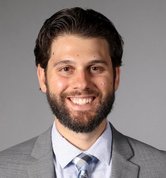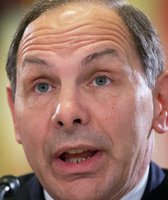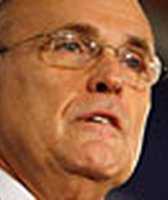Stand up for the facts!
Our only agenda is to publish the truth so you can be an informed participant in democracy.
We need your help.
I would like to contribute
Sen. Rand Paul confused a cable news host when he called vaccines "one of the greatest medical breakthroughs that we have" but that they shouldn’t be mandatory.
"I understand you're all for the choice," CNBC’s Kelly Evans said Feb. 2. "But again, if we're left in a situation where diseases that were once almost wiped out are now coming back because people are deciding not to vaccinate their kids, isn't that a problem?"
Paul replied:
I think public awareness of how good vaccines are for kids, and how they are good for public health, is a great idea. ... Do I ultimately think it is a good idea? Yeah. And so I had my (children's vaccines) staggered over several months. I have heard of many tragic cases of walking, talking normal children who wound up with profound mental disorders after vaccines. I'm not arguing vaccines are a bad idea. I think they are a good thing, but I think the parent should have some input. The state doesn't own your children. Parents own the children. And it is an issue of freedom and public health.
Paul, who was photographed the next day getting a booster shot for a vaccine, later clarified that he "did not say vaccines caused disorders, just that they were temporally related — I did not allege causation."
Sign up for PolitiFact texts
Whether you believe Paul directly links vaccines to mental disorders or stops short of such a connection depends on how you read his remarks. At best, he’s simply acknowledging the concerns some parents have actually expressed, even though they are not based on evidence. At worst, he’s repeating misinformation about a nonexistent link between vaccines and autism. Because you could read the statement both ways, we won’t be putting his statement to the Truth-O-Meter.
Vaccines don’t cause autism. It’s a myth that science has repeatedly and overwhelmingly rejected.
So why does it continue to circulate?
Paul’s statement, however inarticulate, actually provides a window into the answer. As doctors and experts told us, there are instances where seemingly normal "walking, talking" children can suddenly and drastically develop severe mental diseases.
It has nothing to do with vaccines. But it can, in rare instances, occur around the time vaccines are administered. This, as Paul noted in his clarification, is a temporal relationship, meaning the two things happen in succession, but one does not necessarily lead to the other.
"For science, you cannot go by that one incident or those 10 incidents when there are thousands and millions of incidents when it doesn't happen," said Mobeen Rathore, the chief of Pediatric Infectious Diseases and Immunology at Wolfson Children's Hospital in Jacksonville, Fla. "These children were probably going to develop autism anyway, and it just so happens they got the vaccine at that time."
Let’s explain.
Understanding childhood disintegrative disorder
Autism Spectrum Disorder affects about 1 in 110 children, according to the Centers for Disease Control and Prevention.
In most cases, children show signs of autism early, typically between birth and age 5. If a child misses a milestone in his or her development, like smiling after two months or following multi-step instructions by age 3, it can be a sign that the child has autism.
But this is not always the case. Some children may develop on target for several years — laughing, playing and learning — before a drastic change occurs, and a once normal-seeming child rapidly regresses to a severe mental disorder.
This, too, is a form of autism known as childhood disintegrative disorder. It affects about one in 10,000 people, said Kevin Pelphrey, director of the Child Neuroscience Laboratory at Yale.
Often, the child will suddenly undergo a period of anxiety, fear, internal visualizations or night terrors before quickly developing profound autism, including social deficit, lack of language and severe mental disability.
Children with this disintegrative disorder "are some of hardest cases of autism to treat," Pelphrey said.
Autism is a confounding condition that we still don't know much about. Scientific research so far has been unable to determine what causes it, though there are some ideas. Scientists are looking at environmental reasons, as well as genetic causes, or something that occurs during fetal development, Pelphrey said.
Debunking the vaccine-autism myth
But doctors said with certainty you can rule out vaccines as a cause of autism.
Why?
For one, in most cases, the timing just doesn’t add up.
Childhood disintegrative disorder typically occurs when the child is 4. By then, most children will have been at least two years removed from most of their initial and follow-up vaccines. For example, the CDC recommends the measles, mumps and rubella shot to be administered after the child turns 1 but before the 18-month mark.
There are some cases where a child can develop the disorder as early as 2, which may coincide more with the vaccination schedule. That might cause some parents to believe the two events are linked. However, if that were the case, then why don’t most kids develop these disintegrative disorders until much, much later?
More convincing is the research, both biological and epidemiological, dating back decades, said Mark Schleiss, director of Pediatric Infectious Diseases and Immunology at the University of Minnesota.
Large-scale studies have continually shown that autism rates are not affected by the introduction or proliferation of the measles vaccination into a population. In 2004, the Institute of Medicine released an exhaustive, comprehensive review of these studies and concluded, "the evidence favors rejection of a causal relationship at the population level between MMR vaccine and autistic spectrum disorders."
Second, Schleiss said there is just no mechanism biologically by which a vaccine could possibly cause autism. For example, when the Surgeon General in the 1960s declared smoking could lead to lung cancer, it made sense biologically.
"Smoking introduced a myriad of toxins and carcinogens that you could show in a lab affected how a living cell could do its business to tie together the epidemiology evidence that already existed," Scheiss said. "And there is no such link between vaccines and autism."
The anti-vaccine movement proliferated after a 1998 paper was published in British medicine journal The Lancet, which alleged a connection between autism and vaccines. That study was not only debunked, it later came out that the paper’s author, Andrew Wakefield, fabricated much of the work.
There are some side effects to the measles vaccine, according to a 2012 Institute of Medicine safety review of CDC-recommended vaccines. About 4 percent of children may experience fevers that can cause febrile seizures, which are benign and don’t lead to epilepsy or permanent brain damage. Some children may also have an allergic reaction.
As Pelphrey noted, measles can lead to encephalitis, a rare disease that causes brain damage and in some cases death. So parents who forgo the vaccine out of fear of mental disorder actually put their child at risk for developing a severe illness that can cause lasting brain damage.
"I’m a parent of a child with autism myself, and I completely understand a parent’s fear, and I don't frown upon any parent who is concerned about it," Pelphrey said. "But as a scientist, I absolutely know vaccines did not cause my daughter’s autism, and they do prevent diseases that kill children."
Our Sources
CNBC, "First on CNBC: CNBC Transcript: Senator Rand Paul Speaks with CNBC's Kelly Evans on ‘Closing Bell’," Feb. 2, 2015
Email interview with Brian Darling, spokesman for Sen. Rand Paul, Feb. 3, 2015
Institute of Medicine, "Immunization Safety Review: Vaccines and Autism (2004)," 2004
Institute of Medicine, "Adverse Effects of Vaccines: Evidence and Causality (2012)," 2012
Centers for Disease Control and Prevention, "Recommended Immunization Schedule for Persons Aged 0 Through 18 Years," 2015
Centers for Disease Control and Prevention, "How Many Children Have Autism?" Aug. 14, 2012
Centers for Disease Control and Prevention, "Developmental Milestones," March 27, 2014
PolitiFact, "What Barack Obama said about autism and vaccines in 2008," Feb. 3, 2015
PunditFact, "Megyn Kelly: Measles vaccine safety is settled science," Feb. 3, 2015
Phone interview with Kevin Pelphrey, director of the Child Neuroscience Laboratory at Yale, Feb. 4, 2015
Phone interview with Mark Schleiss, director of Pediatric Infectious Diseases and Immunology at University of Minnesota, Feb. 4, 2014
Phone interview with Robert L. Wergin, president of the American Academy of Family Physicians, Feb. 4, 2015
Phone interview with Mobeen Rathore, the chief of Pediatric Infectious Diseases and Immunology at Wolfson Children's Hospital and member of American Association of Pediatrics Committee on Infectious Diseases, Feb. 5, 2015






















































